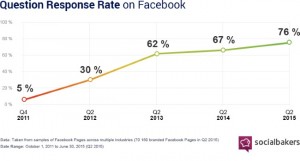Companies need executives that are respective leaders who bring knowledge in their fields, and your company’s technology department is no exception. Hiring a Chief Information Officer (CIO) can help you keep client data safe, promote business growth, and stay within budget.
Read on to learn how hiring a CIO could set your business up for success for years to come.
What Should You Know Before Hiring a CIO?
CIOs do a lot more than restart computers and install software updates. From managing supply chain technology to securing client data, your CIO needs to be your technology leader.
Before you can begin your search for a CIO, your executive team should consider a few questions to help narrow down what you’re looking for:
- What do you hope to get out of a CIO? Do you want someone who can bridge gaps between leadership and IT? Do you need someone with extensive industry relationships?
- Where does your current technology stand? Are you running outdated programs or machines? Do you need to expand the IT team to meet technology demands?
- What are your business goals? Do you want to expand and drive growth by investing in new programs? Are you looking to cut costs by improving existing processes?
You’ll also need to decide if it’s time to bring on another full-time member of the executive team, or if it makes more sense to contract the CIO position using a fractional CIO.
Both types of CIO provide the knowledge to improve business technology, but there are a few key differences to consider:
- Full-Time CIO: A full-time CIO is hired as an employee to your company. They’ll join your executive team and you’ll enjoy their full, dedicated attention every day. The biggest drawback to a full-time CIO is the cost since they’ll need an office, salary, and benefits.
- Fractional CIO: A fractional or virtual CIO works with your business on contract. Depending on your agreement, your fractional CIO will provide expertise on a part-time or temporary basis. While you won’t have a fractional CIO at your company full-time, you generally save significant money over hiring a full-time CIO while still getting the expertise you need.
Benefits of Hiring a CIO
Regardless of whether you go with a full-time or fractional CIO, hiring a CIO comes with the advantages of working with a technology professional. A good CIO works hard to:
- Provide Technology Leadership: A CIO is in tune with the latest updates regarding technology offerings and policies and can offer expert advice. This allows them to recommend the right software, technology equipment, and tools for your business.
- Ensure Data Security: Keeping client and business data safe is a top priority for CIOs. They understand how to mitigate and respond to cyberattacks.
- Improve Efficiency: Technology should help your business run smoother, but you could be losing efficiency by using the wrong tools or not having a unified plan. A CIO looks at the gaps in your current technology procedures and finds ways to bridge them.
- Save Money: A CIO knows how to set and stay within a defined budget. They understand the name-brand technology solution may not be cost-efficient and can offer alternatives that provide the same features.
What to Look for When Hiring a CIO
Like any executive team member, you need to consider the experience and skills of candidates when hiring a CIO. Your search should aim to find someone who is:
- Experienced: As an executive-level teammate, your CIO needs to have extensive experience in the technology industry. An ideal CIO has the experience to help analyze your existing processes for improvement and develop technology goals that align with other company goals. Also, a CIO with existing industry contacts and relationships has a better chance of getting the proper programs and tools for your business.
- Approachable: An executive team that feels overwhelmed by new technology can lead to stagnant IT policies. Your CIO should be friendly, approachable, and capable of explaining new processes and products. A personable CIO makes it easier to implement new tools because they’re able to get the rest of the executive team on board.
- Financially Savvy: Part of being a CIO is creating and following a technology budget. Your CIO should understand how to compare the value of new tools against their cost.
- Executive-Minded: You want a CIO who considers themselves an integral part of the management team — because they are. An executive-minded CIO knows how to take charge of technology discussions, rather than taking orders from the rest of the executive team.
Choosing the Right CIO
Whether you choose a full-time CIO or hire a fractional CIO, the process takes time. With due diligence and patience, you’ll find a CIO who can implement technology to help your business reach its goals.
Business & Finance Articles on Business 2 Community
(14)







